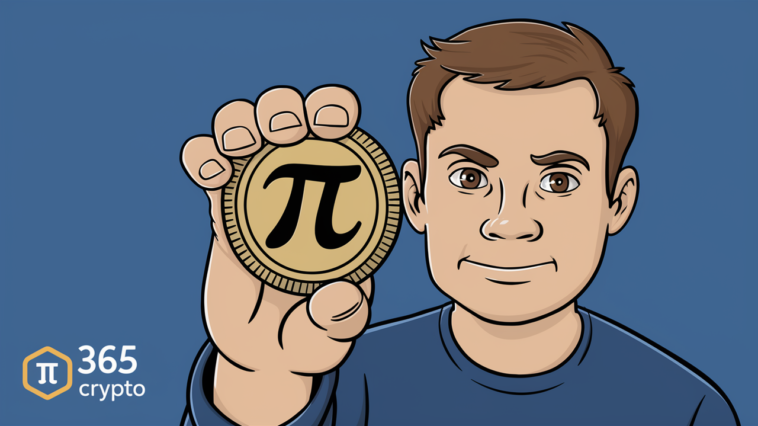What Is Pi Network?
Pi Network is a mobile-friendly cryptocurrency that lets users mine Pi coins without needing expensive hardware. With over 70 million reported users, the project aims to create a decentralized digital economy.
How Pi Mining Works
Unlike traditional mining, Pi Network uses a low-energy process based on trust rather than power-hungry computations.* Users tap a button daily to mine, validate transactions, and grow the ecosystem. Mining rates increase through:
- Security circles – Adding trusted members to secure the network.
- Inviting new users – Expanding the community boosts rewards.
- Using Pi apps – Engaging with decentralized applications (DApps).
* Pi Network’s system is based on the Stellar Consensus Protocol (SCP), which relies on user trust rather than solving complex puzzles like Bitcoin’s Proof-of-Work (PoW) system.
Pi Network’s Path to Open Mainnet
Pi’s development has progressed in phases:
- Beta (2019) – Initial testing and user onboarding.
- Testnet (2020) – Blockchain trials with node operators.
- Enclosed Mainnet (2021) – Internal blockchain use with KYC verification.
- Open Mainnet (Feb. 20, 2025) – External access and full blockchain integration.
What the Mainnet Launch Means for Users
With the open mainnet, Pi Network will:
- Enable external transactions – Users can transfer Pi beyond the network.
- Allow exchange listings – Pi coins may become tradable on major crypto exchanges.
- Expand DApp utility – Developers can build apps for real-world Pi use.
- Require KYC verification – Only verified users can fully participate.
Pi Coin Speculation & Risks
The value of Pi coin is uncertain. Some platforms trade IOUs* at $61–$70, but these prices are speculative. Risks include:
- Inflated user numbers – Only 18M of 70M reported users are verified.
- Supply inflation – With 5.56B Pi coins and no supply cap, excessive circulation may lower value.
- Exchange uncertainty – Initial listings could lead to price volatility.
- Centralized control – Pi’s core team still manages key network functions.
- Privacy concerns – Mandatory KYC raises data security issues.
* IOUs (I Owe You) are speculative crypto contracts that allow pre-launch trading of a coin, but they don’t guarantee real value when the asset becomes tradable.




